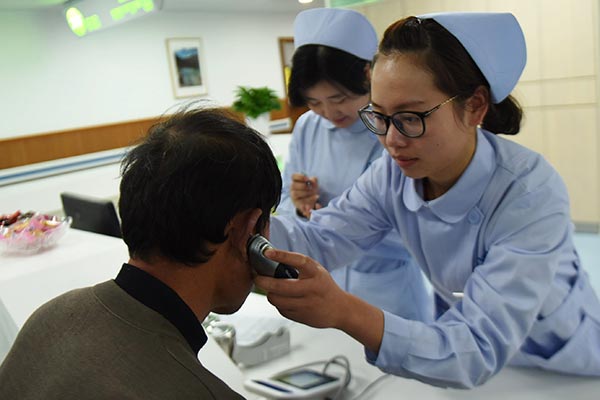
"By setting up internet-based hospitals, tech companies are finally looking at the key aspects of tele-diagnosis, which promises bigger chances of profitability," Jiang said.
Qin Zexi, an analyst at Beijing-based iResearch Consulting Group, said the internet-based healthcare industry will continue to gain steam, thanks to the swift development of the mobile internet technology and the government's intensified efforts to push forward medical reform.
"Public hospitals used to be very reluctant to embrace the internet. But now, that has been gradually changed by the government," Qin said.
In March, Li Bin, minister for the National Health and Family Planning Commission, called for more widespread use of the internet to direct patients to different medical institutions based on their needs, so as to reduce the pressure on big hospitals and improve the efficiency of medical resources.
Unlike other internet-enabled services such as e-commerce which first boomed in rich eastern provinces, online medical service providers have ventured into less-developed western regions from the very beginning.
We Doctor Group, which has raised more than $100 million from Tencent, opened an internet-based hospital for northwestern Gansu province earlier this month by teaming up with a local public hospital.
"The internet can help expand medical services to secluded villages and remote regions such as Tibet," Liao Jieyuan, CEO and chairman of We Doctor Group, said, adding patients can enjoy video diagnosis, e-prescription and drug delivery service from its platform.
Alibaba also moved in the same direction by running a similar project in a village in central Hubei province, hoping to help villagers deal with common and chronic illnesses like hypertension and diabetes.
But other players are eyeing the higher-end of the online healthcare market, which includes handling of serious and complicated illnesses by pooling top-level doctors.
"Every year, thousands of people travel to top-tier cities, looking for experts to treat diseases which local doctors fail to cure," said Wang Hang, CEO of Haodf, which claims to have 100,000 qualified doctors on its service.
"By leveraging the internet, patients can first have a video call with experts to see whether they need to be treated in person. This helps reduce unnecessary transportation costs. Local doctors will also be present to offer the most accurate descriptions of patients' symptoms," Wang said.


















































